Posted on 12/23/2022

Have you recently noticed your automobile making odd noises out of the blue? Typically, vehicles shouldn't make strange noises unless something is wrong. Most drivers hope that any sudden engine noise changes will go away. Unfortunately, strange engine noise hardly disappears. So, it's best to watch out for the following car noises that need immediate attention. 1. Squealing or Chirping Sound Your vehicle may need immediate attention if it squeals as you accelerate or turn it on. This odd noise may result from loose or old accessory belts for older automobiles. Additionally, squealing noises may come from faulty breaks. It means a lack of enough padding to protect the brakes. 2. Rumbling Rumbling noises are often a result of a hole in your vehicle's muffler. Drive the vehicle to the nearest auto repair shop if you hear these noises to avoid inhaling the leaking fumes. Sometimes the rumbling noises are accompanied by shaking. The cylinder ... read more
Posted on 11/30/2022
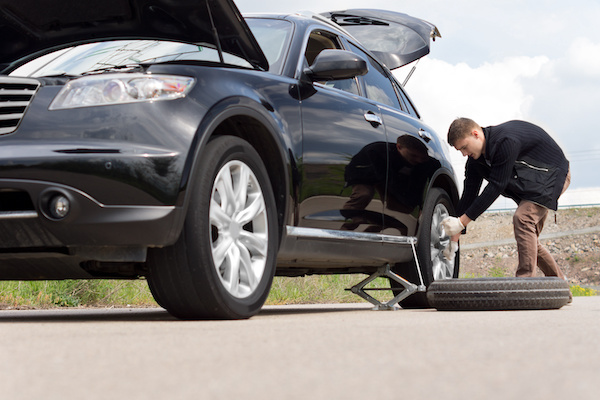
Whether you’re an old or young driver or a new or experienced driver, you should be prepared for any mishaps on the road. One of the most common reasons for automobile breakdowns is a flat tire. Today, we will go over why it is a necessity to learn how to fix or change a flat tire. First, you will need to have a spare tire, that is properly inflated, on hand. Fortunately, all it takes is about 30 minutes of your time to change a flat tire for a spare one. To ensure the removal and installation of these tires go smoothly, you will need the following tools: A Jack A Lugged Wrench Owner’s Manual Gloves (Optional) Reflective Jacket (Optional) And a Spare Tire Step 1: Pull Your Vehicle Over to a Safe Spot To avoid an accident, please pull over to the side of the road or to a safe location for the job. Turn off your car engine, gather your items, and be ready! Step 2: Loosen the Lug Nuts Turn the lug nuts counterclockwise with the wrench. Do not remove them all the way a ... read more
Posted on 10/31/2022

While windshield wipers are simple to understand, it might be harder to predict how long they last — and to know when they need to be repaired. Luckily, there are some clear signs you can look for to determine if you need a windshield wiper replacement. How Long Do Windshield Wipers Last? According to most windshield wiper manufacturers, you should change your windshield wipers every 6 to 12 months. The wipers gradually wear down from use, so you may need to replace them more frequently if you live in a rainy climate. Some mechanics check the condition of windshield wipers during routine maintenance, but if your mechanic doesn't check them, you can generally assume replacing the wipers annually is sufficient. What Are the Symptoms of Bad Windshield Wipers? There are some clear signs you can look for to determine if it's time for a windshield wiper replacement. Streaking. When windshield wipers function optimally, they should leave your entire windshield clean and pr ... read more
Posted on 9/29/2022
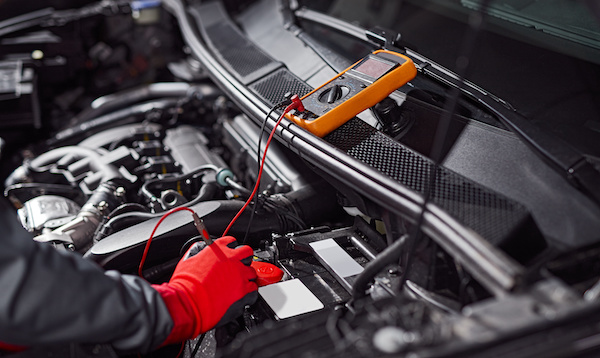
Your car battery is similar to the heart of the body. It needs to beat, or be charged, to provide electricity to start your engine, keep it running, and power your other electrical accessories. If the battery is dead, you can expect nothing to work. Car batteries are just like your other electronic accessories – they weaken and can stop working over time. Most automakers recommend replacing your car battery every 3-5 years. Some batteries can last longer than others. Being able to spot the signs of a failing battery is key to preventing yourself from getting stranded in the future. Let’s take a look at some of the symptoms of a dying vehicle battery. What Are the Signs of a Dying Battery? Batteries don’t usually stop abruptly. It may give off the following indicators before going out: Slow-to-Start Engine: If you notice that it takes a longer time for your engine to turn on, it could mean your battery has weakened. Heavy Corrosion on Terminals ... read more
Posted on 8/26/2022
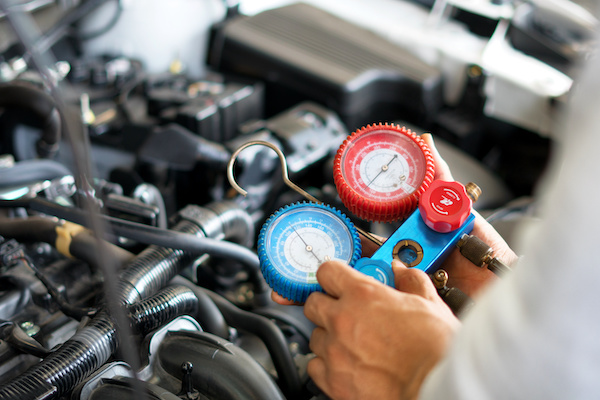
If you own a newer model vehicle, then there’s a good likelihood that your car uses R-1234YF as its A/C refrigerant. Cars are constantly changing with newer and better technology, and that includes the auto air conditioning system too. For several years now, all vehicles have had this new air conditioning technology. R-1234YF is a synthetic refrigerant with a very low global warming potential, which means it has a low impact on polluting the atmosphere. It combines three elements: hydrogen, fluorine, and carbon. Before the innovation of R-1234YF, vehicles used R12 or Freon AC refrigerants. In the 90s, R-134a refrigerants replaced the R12. And now, R-1234YF has proven to be the best refrigerant when it comes to being eco-friendly. R-1234YF Versus R-134a Refrigerants The biggest differences between R1234YF and R134a are the size of service couplers and the hose connections. As you can imagine, the shift in the industry has caused many industry professional ... read more
Posted on 7/27/2022
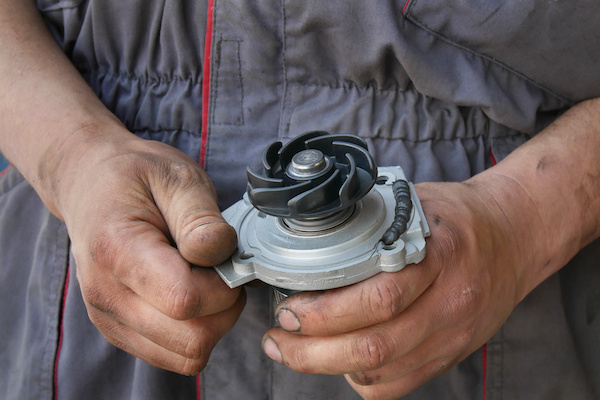
If you're driving and your car starts making strange noises, it could be a sign that there's something wrong with your water pump. Here are 6 symptoms of a failing water pump to watch out for. 1. The Engine Starts to Overheat One of the first and most common signs that your water pump is failing is when your engine overheats more frequently. This is because the water pump is responsible for circulating coolant throughout the engine. 2. There's No Coolant in the Reservoir If you notice that there's no coolant in the reservoir, it's a symptom of a failing water pump. It's possible that the water pump has failed, preventing coolant from circulating and eventually boiling off. 3. Smoke Coming From the Engine If you notice smoke coming from your car's engine, it could be a symptom of a failing wate ... read more
Posted on 6/27/2022
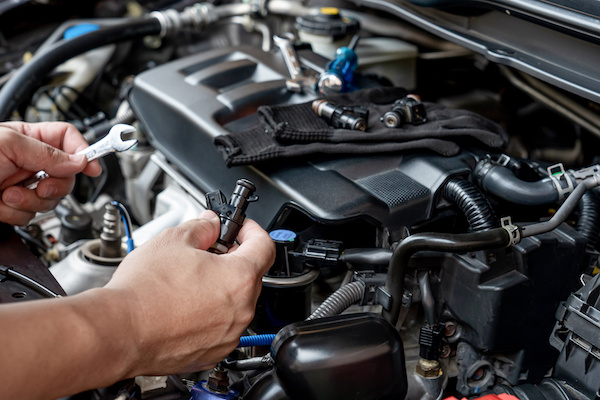
What Are Fuel Injectors? The fuel pump in your vehicle feeds gasoline to the fuel injector. Fuel is injected/sprayed into the intake manifold at a precise angle by the fuel injector. Air and gasoline combine in the intake manifold. In the combustion chamber, the air-fuel combination is compressed, starting the chemical process that powers your engine. Why Does Your Vehicle Need Fuel Injectors? Engines outfitted with fuel injectors have a better power output than carburetted engines. As a result, fuel injectors are one of the most significant technological advancements in the automobile industry. Common Symptoms Associated With Bad Or Clogged Fuel Injectors The Engine Misfires Your vehicle's engine may misfire due to dirty fuel injectors. The motor may splutter because of this situation, creating vibrations throughout the car. When a defective fuel injector upsets the proper balance of fuel and air entering the engine, misfires can occur. Rough Idling Does your car splutter ... read more
Posted on 5/26/2022
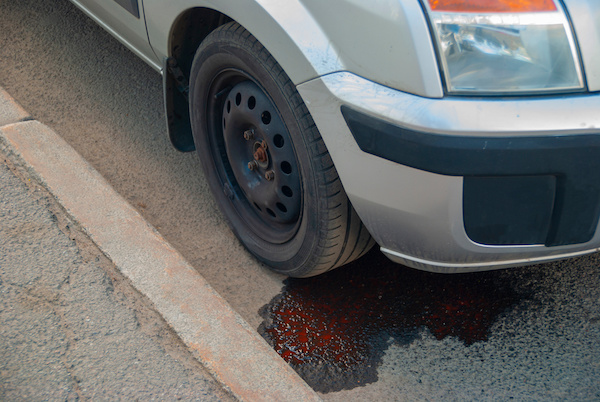
Various fluids can leak from your car. While some leaks may not be troublesome, some can cause serious consequences, such as steering issues and engine failure. It's important to know the various types of fluid leaks to help you identify the fluid leaking from your car and why. Here are some of the various fluid leaks that your vehicle may leak: Coolant Leak Coolant leaks tend to be orange, pink, or bright green. A coolant leak protects your car from overheating and grinding, and therefore, this fluid's leakage can be catastrophic. However, it is normal for old cars to have coolant leakage, but modern cars are designed to prevent such leaks. Oil Leak Oil leaks appear brown or black. It can occur due to seals in the engine, valves of oil pans, or a degraded engine gasket. The color change may be due to usage, aging, or elements such as debris or dust. Brake Fluid Leak If you notice that your car is leaking a bright-colored fluid with a fishy smell, the leak is likely a bra ... read more
Posted on 4/28/2022
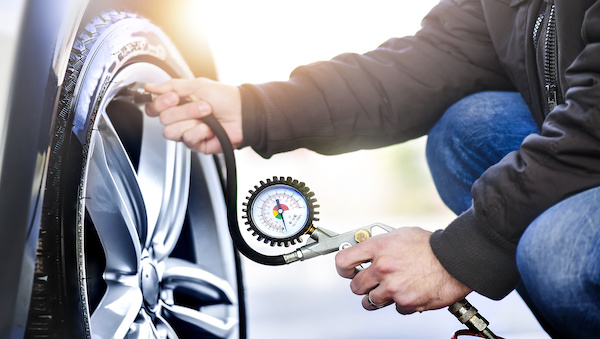
Tires are an important part of your car, and need proper care and maintenance to keep your vehicle working as intended. By following these simple steps, maintaining your tires will be an easy feat. Rotate your tires Tire rotation is a crucial part of maintenance, and it should be performed on a regular basis every 5,000-7000 miles. It is performed by removing each wheel and placing it in a different location on the vehicle to ensure even wear and tear. A tire professional should inspect the tires during each rotation. Have your wheels balanced Every 15,000 miles, you should have a trained technician balance your wheels. By ensuring that the wheels are properly aligned and that the car's weight is evenly distributed, you can lengthen the life span of your tires. Measure your tread depth Deep treads are crucial for your tires to grip the road and give you proper control of the vehicle. You can test the tread of your tires with the "Quarter Test," which involves findin ... read more
Posted on 3/28/2022
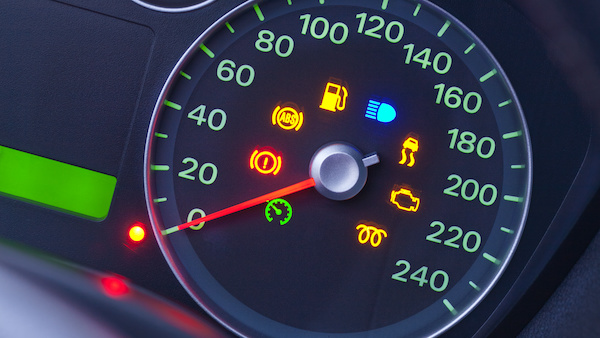
When you're driving, it's important to be aware of the warning lights on your dashboard. They can indicate that something is wrong with your car and needs to be fixed. Let's look at 5 of the most common warning lights: Check Engine Light The check engine light is one of the most important warning lights on your dashboard. It indicates a problem with your car, and you need to take it in for repairs. The light can be caused by various issues, so it's best to get it checked out as soon as possible. Coolant Temperature Light The coolant temperature light comes on when the engine is getting too hot. This can be dangerous, so you'll want to pull over and turn off the car as soon as possible. The light will usually go off once the engine has cooled down. Drive carefully when you take the car home. Once at home, wait until the entire engine has cooled down to investigate the issue. Low Engine Oil Light The low engine oil light usually comes on when there isn't en ... read more